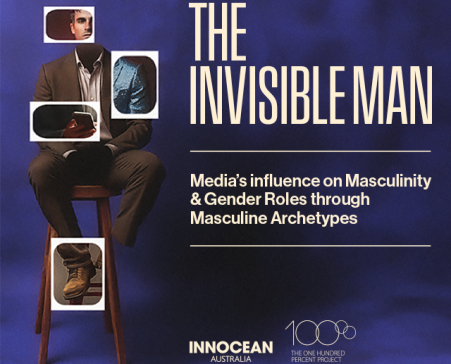Diversity of Thought Blog
Marty Linsky’s reflections on the Level the Playing Field Symposium
As the external facilitator, I came to Leveling the Playing Field with curiosity, commitment and conviction. I had seen the statistics, read all about the state of gender equity in Australia, and particularly about the comparative dearth of women in senior authority roles across all three sectors.
I was curious about why there had not been more progress, committed to making a contribution, and convinced that gender equity in Australia was the kind of challenge that the tools and frameworks of adaptive leadership were ideally suited to employ.
One of the paradoxes of leadership is the need to maintain relentless optimism and brutal realism. The optimism prevents the realism from turning cynical; the realism prevents the optimism from becoming naïve. Holding both together is itself a leadership challenge.
I left the Symposium with my optimism and realism intact. Progress can happen, but the pathway forward will be difficult.
Among the more than 90 participants, several factions emerged, each with its own dynamics and its own particular needs, and each will require customized interventions if the drivers of the Symposium are to build on the momentum of that day and mobilize the participants to do more than they have to date on behalf of gender equity.
There were those who have been laboring in these vineyards for years and in order to keep up the struggle, they came needing to be affirmed. We did not do enough of that. I think of them as the Exhausted Veterans.
There were those who were sent by their organizations, were relatively new to the work, many of them women in their 20s or 30s, who desperately wanted to hold on to the hope that more progress could be made if we all just made the obviously compelling arguments to those who were not aboard. I think of them as the Untested Idealists.
There were the men, too few of them, who were mostly watching, learning what it felt like to not be in the majoritarian culture, struggling to find their voice in the conversation, mirroring the struggle the women were experiencing trying to get them involved. I think of them as the Supportive Observers.
Finally there were the hard core, women whose have been out front on gender equity, were bruised and frustrated, but willing to continue to put themselves on the line, who realized that if they kept on doing what they had been doing, nothing would change. They came knowing there was no silver bullet, but open to seeking new ways of approaching the challenge of mobilizing people on behalf of gender equity, understanding intuitively that they, too, had to adapt their behavior if more progress is to be made. I think of them as the Relentlessly Committed.
The Symposium participants were in no way a microcosm of Australian society as a whole. My guess is that they were a pretty good representation of what the Australian Women’s Movement looks like today. They reminded us that there is reason to continue to be optimistic about the possibilities for progress, but that the way forward will require different strategies for different people. Potential allies are going to bring different values, different rationales, and different world views and comfort zones to the work. The challenge of mobilizing them to do more than they are currently doing will require even the most committed among the participants to make some hard choices about what risks they are willing to take, how much disturbance they are willing to generate, even among their friends, on behalf of gender equity going forward.
Marty Linsky has been a faculty member of Harvard Kennedy School since 1982, except for 1992-1995 when he served as Chief Secretary and Counsellor to Massachusetts Governor William Weld. He has taught leadership, management, politics and media, and is currently faculty chair of several of the school’s executive programs on leadership. He has worked with a wide range of clients in the public, private and non-profit sectors in the US and abroad, including Fortune 500 companies and major federal government agencies.
Linsky has worked on advancing gender equity as a coach, trainer, facilitator, and advocate in a variety of settings and co-authored the book Leveling the Playing Field: Advancing Women in Jewish Organizational Life. He is the author or co-author of more than a dozen books and chapters. He is a co-author with Heifetz and Alexander Grashow of the book The Art and Practice of Adaptive Leadership and co-author with Heifetz of the best-selling Leadership on the Line: Staying Alive Through the Dangers of Leading, both published by Harvard Business Press.


